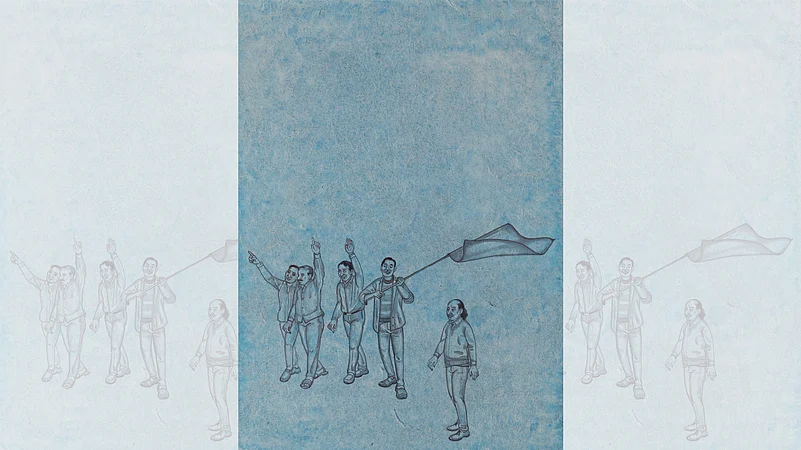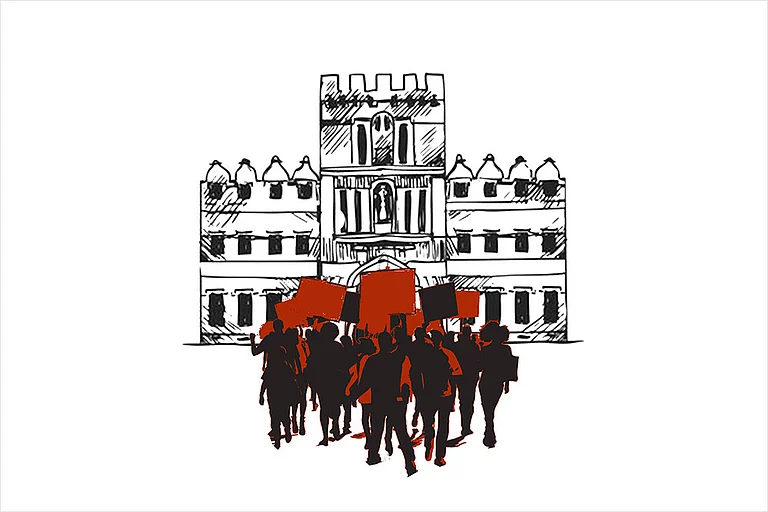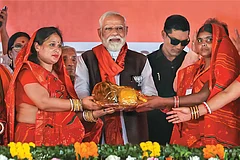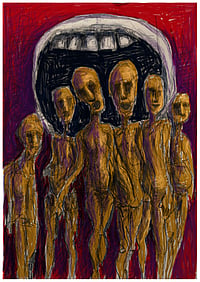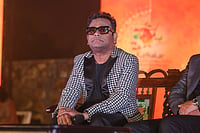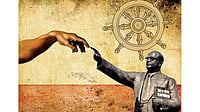
Elections today are reduced to spectacle and arithmetic, stripped of the ideological convictions that once gave democracy meaning.
The erosion of ideology has replaced moral purpose with opportunism, transforming politics into theatre and citizens into passive spectators.
Reclaiming ideology means restoring ethics and vision to public life—demanding that power once again serve principles, not merely ambition.
I write this while the Bihar Assembly elections are just a few days away, and we all know that elections are the most visible expression of people’s sovereignty. They are the heartbeat of a republic that lives through periodic renewal—people delegating power through the voting machine. Yet, when elections are stripped of ideology and reduced to a mechanical ritual of numbers, promises, and spectacle, democracy begins to decay from within. It may still look vibrant, but its soul has departed.
What gives democracy meaning is not merely the act of voting, but the ideas that animate those votes. Elections are supposed to be contests between competing worldviews—visions about justice, equality, governance, and the moral direction of society. When ideology disappears from this canvas, what remains is a noisy marketplace of opportunism where principles are traded for seats, and convictions are sacrificed at the altar of expediency. Today, one must ask—what does an election mean when the only metric of success is power, and when the grammar of politics is reduced to arithmetic? When every defection, every alliance, and every volte-face is justified in the name of “practical politics” or the false wisdom of “Chanakya-niti”, it is the people who are betrayed. For democracy is not about who wins power; it is about why that power is sought and how it is used.
Ideology has long been the moral compass of political life. It provides coherence between words and deeds, between past struggles and future promises. It tells the voter where a party stands when faced with questions of justice, inequality, or communal harmony. Yet, in much of contemporary politics, ideology has been replaced by convenience.
Parties that once spoke of social justice now forge unholy alliances with forces that oppose its very spirit. Leaders who built their careers opposing communal politics now echo its slogans when it suits them. Ideological betrayal has become a form of political gymnastics—the ability to stand anywhere, with anyone, for the sake of survival, and that too without any qualms.
The decline of ideology also signals the rise of what may be called the “marketisation” of politics. Parties become brands, candidates turn into commodities, and voters are treated as consumers to be enticed, not citizens to be convinced. In such an ecosystem, elections cease to be instruments of representation and become tools of manipulation. The outcome may still be called a “mandate”, but it is one acquired through spectacle, not substance—and yet such mandates are paraded as evidence of “free and fair” democracy.
When ideology disappears, the first casualty is trust. People begin to feel that politics is a game played above their heads—a cynical enterprise where every promise is provisional, every alliance transactional, and every move calculated on the crude parameters of cost-benefit analysis. The voter may still line up to cast their vote, but the act no longer carries faith or conviction. This slow erosion of trust can corrode democracy’s foundation. People start believing that nothing really changes, that whoever wins behaves the same. This cynicism—not dissent—is democracy’s greatest danger. Dissent still believes that change is possible; cynicism does not. The moment citizens stop believing that ideas matter in politics, democracy loses its vitality and drifts toward decay.
The betrayal is deeper in a country like India, where democracy was born out of ideology. The national movement was not an exercise in power-seeking—it was an ideological project grounded in freedom, equality, fraternity, justice, and secularism. Gandhi’s politics was moral; Nehru’s was visionary; Ambedkar’s was transformative. Their disagreements were ideological, but their commitment to the Republic’s moral idea was absolute. Can we locate even a fraction of those values in our contemporary politics? Today, ideology is seen as a liability—a sign of rigidity or irrelevance. Politicians boast of being “pragmatic”, as though morality and conviction were obstacles to success. But pragmatism without principle is mere opportunism wearing the mask of wisdom—and it destroys the very edifice of democracy and its institutions.
Every election season brings a carnival-like atmosphere: endless rallies, glittering promises, slogans that vanish after voting day. The media narrates it as sport—who’s ahead, who’s lagging, who’s switching sides. But beneath the noise lies profound emptiness. When ideology is absent, politics becomes theatre. Every speech is a performance, every alliance a scene, and every victory a curtain call. But democracy cannot survive on performances alone. Governance demands moral direction—a sense of purpose that cannot be supplied by marketing agencies or data analytics or the genre now called “election consultants”. The language of ideology—whether of social justice, secularism, socialism, or human rights—once provided that moral compass. It reminded governments of their duties toward the marginalised, the oppressed, and the excluded. It demanded accountability not just for efficiency, but for equality and fair representation. Without that anchor, politics drifts into populism, where raw emotion replaces ethics and the nation becomes a stage for personal ambition.
The erosion of ideology also reveals a deeper crisis—the shrinking of democratic imagination. When every party promises the same model, the same cosmetic commitments, and the same silence on injustice, the voter is deprived of meaningful choices. Votes cast in long queues become acts of resignation, not affirmation. True democracy thrives when different ideas of India compete—when one vision says “liberty first”, another says “equality first”, and yet another insists on “fraternity as foundation”. That ideological contestation keeps democracy alive and self-correcting. When uniformity of slogans replaces diversity of thought, we get conformity instead of consensus, and control instead of choice.
Reclaiming ideology is not about returning to dogma or rigidity. It is about restoring the moral imagination that once defined Indian politics. It means asking uncomfortable questions: What kind of society do we want? Whose interests does the economy serve? What does justice mean in our times? Are we pained by the invisibility of the marginalised? A politics without ideology cannot answer these questions because it is not interested in them. In fact, it systematically ensures these questions never occupy the centre stage. Democracy must be more than a race for arithmetic majorities; it must strive for ethical legitimacy and moral majority.
Every political movement that changed history did so because it believed in something larger than itself—liberty, equality, human rights, or dignity. Once we abandon ideological worldviews and cling only to tactics or strategy, politics becomes sterile. It can produce governments, but not governance. For democracy to retain its meaning, political actors must rediscover ideological clarity and make it integral to their persona. Parties must be transparent about what they stand for, even when it is inconvenient. Leaders must stop treating ideology as a costume—to be worn in one state and discarded in another, to be invoked in one election and forgotten in the next. ‘We, the People of India’ deserve clarity, not camouflage.
Citizens, too, must demand more and abandon the chalta hai attitude. Voting should not be an act of blind loyalty, but of informed choice. To ask what a party stands for is not naïve; it is necessary. The voter must insist that politics return to ideas because, without ideas, democracy will only produce rulers, not representatives. Elections without ideology are like bodies without souls—they may move, speak, and function, but they cannot feel or inspire. The rituals of democracy—rallies, campaigns, voting days, opinion polls—can continue indefinitely, but unless they are infused with conviction and moral purpose, they will ring hollow.
India’s democracy has survived many storms—but its gravest threat today is not from external enemies; it is from the internal emptiness of our politics. The farce of ideology-less elections must end if the Republic is to endure. We must remember that democracy was never meant to be about winning power; it was meant to be about serving principles. If we cannot restore ideology to politics, we will soon discover that while the machinery of democracy remains intact, the meaning of democracy has quietly died.
(Views expressed are personal)
MORE FROM THIS ISSUE
This story appeared as Elections = Ideology in Outlook’s November 11 issue, titled "Caste is the Biggest Political Party in Bihar," which explores how caste plays multiple interconnected roles in seat-sharing and coalition-building in the land of the setting sun.






